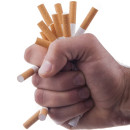
Helpful Articles
What a Hangover Does to the Body
February 5th, 2015 Alcohol Addiction, Helpful Articles

Lower Nicotine Levels Don’t Increase Number of Cigarettes Smoked, Study Finds
January 30th, 2015 Drug Addictions, Helpful Articles

Signs of a Drinking Problem
January 29th, 2015 Alcohol Addiction, Helpful Articles

Low Serotonin Levels May Fuel Drug Addiction
January 28th, 2015 Drug Addictions, Helpful Articles

Unemployment, Limited Education Increase Drug Users’ Risk of Fatal Overdose
January 26th, 2015 Helpful Articles

Binge Drinking: More Likely in Middle-Aged Adults
January 23rd, 2015 Alcohol Addiction, Helpful Articles

The Importance of Detox
January 23rd, 2015 Helpful Articles

Understanding Step Two
January 21st, 2015 12 Steps, Helpful Articles

Study Shows How Exercise May Help Meth Addicts Stay Clean
January 19th, 2015 Helpful Articles, Relapse Prevention

Drug Use Often Consequence, Not Cause, of Homelessness
January 17th, 2015 Helpful Articles

Article Categories
- 12 Steps
- Addiction in the Family
- Addiction Infographics
- Alcohol Addiction
- Articles
- Drug Addictions
- Drug Rehab Center News
- Helpful Articles
- Holidays & Substance Abuse
- Mental Health & Addiction
- Real Life Addiction Stories
- Recovery Testimonials
- Relapse Prevention
- Substance Abuse Prevention
We Offer the Following Treatment Programs
Contact Elements Behavioral Health
Call 855-678-8337 for a confidential assessment or fill out the form below and we will call you.
